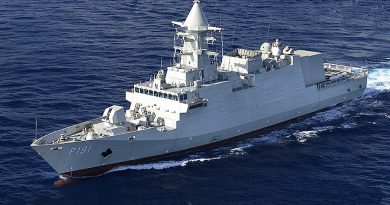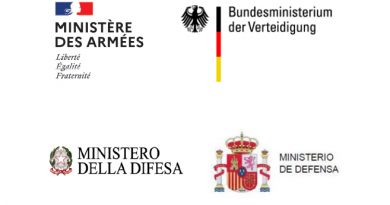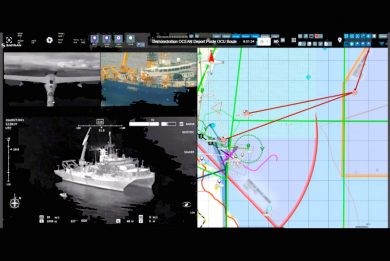
Keynote Speech – Thierry Breton, Commissioner for Internal Market, European Commission
“One year ago we have started with a great ambition: Commissioner von der Leyen made it clear that this Commission is a geopolitical commission, Europe needs to define its place in the world, between old superpowers and raising new ones,” Thierry Breton, Commissioner for Internal Market, European Commission, stated in his recorded speech to the EDA Annual Conference audience. “In these eight months COVID-19 dominated the political agenda across the European Union. This double crises, both health and economic, acted as a catalyst of major geopolitical trends but also on stability and conflicts worldwide,” he added. The corona virus led to a different thinking of Europe, “The time of a naïve Europe has passed,” Mr. Breton said adding, “We still count on the virtues of the traditional soft power, but this is not enough. Europe must now be a strategic and autonomous actor. In this way we need to progressively acquire some of the features of hard power so that Europe can defend its vision and its interests. It is about becoming a more credible partner for our allies.” He also said that Europe must make everything possible to emerge stronger from this global crisis. “We have to take a number of decisive choices, in order to give the European Union the means for a strong industrial recovery, to become more resilient, so we must become more active, and take strategic leadership.” He underlined the strong actions taken by the European Commission, which put forward an unprecedented recovery package, and the fact that this investment can make a real difference in defining the international position of the EU. “We allocated resources to increase the global competitiveness and innovation capacity, we invested in the green and digital transition, and we will become more resilient by investing in areas of strategic importance including our preparedness against biological threats,” Breton explained.
Europe is not a fortress, and it will remain open especially to cooperation, however taking the strategic leadership means that Europe must be able to autonomously analyse, decide and act. It also means protecting autonomously its strategic interests. “Strategic autonomy doesn’t mean protectionism, it is not about closing the doors to our partners, isolating ourselves, or blocking foreign investments, in my view it refers rather to the capacity to have a choice, in developing and maintaining our infrastructures, technologies, skills, competencies, and in reducing critical dependencies on third countries, so we can rely on our own if necessary.
Mr. Breton then focused more specifically on defence, highlighting the many challenges, some of technological nature, that nations can only address together and by investing in defence Research and Development (R&D). Maintaining collective investments in defence is considered of paramount importance by Mr. Breton, as well as securing supplies by protecting defence value supply chains. Another key issue is avoiding the declining of defence investments, as it happened after the 2008 financial crisis and which effects lasted for a decade. “We also have to spend wiser, by spending together, acting together, and focusing our efforts on common threats,” he said. He stated that a lot was achieved in the past years in consolidating European defence cooperation, but now this must be sustained in order to become the norm. “The EDF is a very good example to trigger sustained Europe defence cooperation; for the first time we invest 8 billion Euro of EU budget money in cooperative defence R&D projects, to make sure that Europe has a sustainable and innovative defence industrial and technological base, able to deliver the defence equipment that Europe needs,” Mr. Breton highlights. EDF funds will represent around 13% of the overall Europe R&D funds dedicated to defence, while the co-funding mechanism will allow guiding an even more significant share of the overall defence R&D, Breton said. Protecting the European defence industry while allowing it to export is another key issue; “We established strong safeguards to protect the security and defence interests of the EU and its Member States, and to guarantee their freedom of action in the use and export of defence equipment, and these conditions are security-based and not commercially-driven.” Mr. Breton also recalls that within the 2019 European Defence Industrial Development Programme (EDIDP) funding projects three of them were considered eligible and will receive funding. “Preparations for the fully fledged EDF and setting up the 2021 work programme are underway,” Mr. Breton announced, adding that discussions with Member States have been launched and so far 11 clusters have been identified, covering all military domains and areas as varied as defence medical echelons, information superiority, cyber defence, space, digital transformation, energy and environmental resilience, materials, air-to-ground and maritime capabilities; “All these areas should enable the Commission to respond to the needs of Member States while targeting critical capabilities that are essential for the future,” further explaining how the fund will continue promoting interoperability, open supply chains and facilitate lasting industrial partnerships. He added, “EDF should facilitate an innovative defence ecosystem with a strong cross-border cooperation, with a crucial role of SMEs. It will contribute in filling existing gaps by developing EU technologies, thus reducing critical dependencies, enhancing Union resilience and Union strategic autonomy. As a conclusion Mr. Breton underlines the coherence of all initiatives adopted to build a defence Union; “Josep Borrell and myself work closely to ensure that PESCO and EDF are fully aligned, and it works. We will continue doing so by aligning our views on CARD, and also on the Strategic Compass. I am also particularly pleased of the ongoing cooperation with the EDA, which is fully involved in the preparation of the EDIDP calls.”



